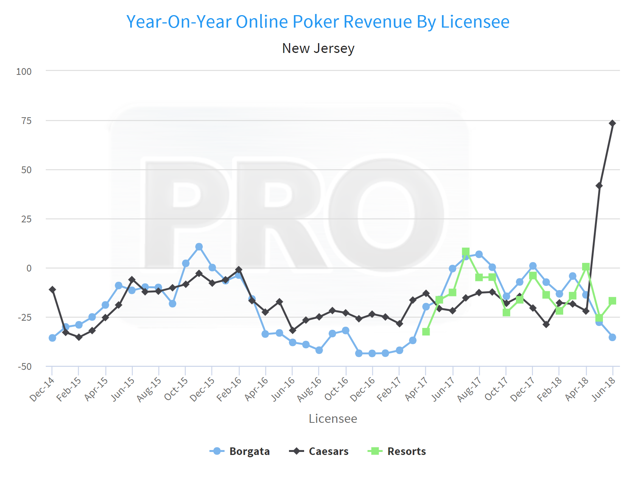Shared Liquidity Poker
Poker depends on shared liquidity more than any other gambling activity, according to Lee Jones, director of poker communications at PokerStars. Why Shared Online Poker Liquidity in Europe Won´t Work While many in the poker media have got excited about France, Italy, Spain and Portugal sharing online poker liquidity, not everybody feels as optimistic.
One of the biggest problems facing US online poker is that no one knows what the market will look precisely like at full maturity.
It isn’t all that young, of course.
Legal online poker has been available in New Jersey, Nevada, and Delaware for six years. Yet these states form such a small market compared to what’s possible in the future that they don’t give us an accurate picture of what will be.
Instead, we have to look elsewhere for clues.
PokerStars Europe strips incentives from foreigners
Developments in liberalized European markets can often foreshadow things to come in the US.
PokerStars recently made a change to the policies ($) for its European shared-liquidity network, highlighting a problem that could arise down the road with shared liquidity in the US.
The change involves foreign players who are allowed to play on the network via its Spanish site. They will be allowed to continue doing so, but PokerStars has decided to end their ability to benefit from promotions and rewards.
On the surface, that decision has nothing to do with the US market. However, the reasoning behind it might prove relevant down the road. In a nutshell, PokerStars is worried that dot-com players are better than European players — and it wants to discourage the former from preying on the latter.
State-by-state regulation causes liquidity issues
Shared Liquidity Poker App
The US is in a unique situation due to the need to legalize and regulate poker on a state-by-state basis.
It’s both unfortunate and unavoidable. The US is too politically fragmented, and there are too many forces opposed to gambling to hope for sensible federal legislation.
The problem with that is that it splits what could be a large player pool into several smaller ones. That’s not an issue for sports betting and online casino gambling, but it is for poker. After all, poker players need to play against other poker players.
Under segregated liquidity, smaller states may not be able to get poker up and running at all. Even larger states may find it limits the games or stakes that are viable to spread.
PokerStars, for instance, found New Jersey too small for its Zoom fast-fold format (though it might try again in Pennsylvania).
Shared liquidity has its challenges
Allowing states to share player pools is the obvious solution. And fortunately, the biggest legal hurdle to that is out of the way for now.
Earlier this year, a federal courtruled against the Department of Justice (DOJ) in its attempt to extend the Wire Act to forms of gambling other than sports betting.
Shared Liquidity Poker Rules
As far as other challenges go, this is where we can look to Europe. The situation there isn’t the same, but there are similarities.
Spain, Portugal, and France all legalized poker separately but have since entered a liquidity sharing compact. Nevada, New Jersey, and Delaware have done the same in the US, though WSOP/888 is the only network currently taking advantage of multistate poker.
In Europe, Italy was expected to participate in shared liquidity. It has been dragging its heels for almost two years now, however, leaving players wondering if they’ll ever get to be part of a larger pool.
Likewise, in the US, a big question mark hovers over Pennsylvania online poker in that regard.
Regulators and politics are part of the problem

The problem in Italy is political. One government promised shared liquidity, but the next one voted in didn’t like the idea.
There’s similarly no guarantee in Pennsylvania that legislators and regulators will get behind the idea of shared liquidity. The same will be true with other states that legalize poker, regardless of whether operators and players want it.
But what if there’s a skill gap between states? The operators themselves might feel it’s in the best interest of the players to keep them separated, at least for a time.
That’s analogous to what’s happening in Europe.
Big fish in a small pond
In Europe, the problem isn’t between the shared-liquidity countries themselves. Rather, it’s between the global pool and the players in those three countries — notably France. Both France and Spain allow foreign players to play on local sites, but not the other way around.
For reasons beyond the scope of this article, these countries skew towards a recreational crowd. Meanwhile, the dot-com player pool contains players from countries like Belarus and Russia, which produce a higher number of low- and mid-stakes online professionals.
Shared Liquidity Poker Games
The European network has a higher rake and less traffic than PokerStars.com. The only reason, then, for players with access to dot-com sites to want to play on the European network instead is to seek out the weaker competition.
Allowing sharks into the aquarium
PokerStars, therefore, faces a tradeoff between increasing traffic and protecting its recreational players. Prior to shared liquidity, it chose to allow foreign players in France but not in Spain. It needed the extra traffic in France to compete with local heavyweight Winamax.
The company temporarily reversed its decision in France in 2017, removing foreign players from the site. Once shared liquidity began, however, it elected to allow them back on the network — albeit via PokerStars.es.
It justified this by saying it felt the local player pool was now large enough that foreign professionals wouldn’t make up a large enough percentage of the field to hurt the ecosystem. It chose to allow players back online via the Spanish (rather than French) site due to the more favorable tax rate.
Now, it seems to be regretting that decision. Rather than forbidding foreign players outright, however, it has stripped them of their rewards and promotions. Presumably, it hopes that reducing their effective edge in this way will convince some to switch back to dot-com voluntarily.
Same problem, different reasons in the US
It’s unlikely that the US market will ever be open to foreign players. If ecosystem concerns prove to be an impediment to shared liquidity in the US, it won’t be because of Belarusian sharks.
Rather, it could come about because of skill differences resulting from the time states take to pass legislation. Except for those willing to play on illegal offshore sites, most US players haven’t played online since 2011. Many Americans under the age of 30 may never have played.
Even recreational players improve with time. However, that can’t happen if they’re driven out by far superior players first.
A hypothetical future for multistate poker
Imagine the following situation: Pennsylvania and a few other states like Michigan all join the existing multistate poker alliance. As other states pass their legislation, they join the pool immediately.
Six or eight years from now, perhaps, California finally gets its act together and legalizes online poker. Its players have only limited experience and only with live poker. Meanwhile, players in the early-adopter states have been practicing for the better part of a decade.

New sites opening in California could, therefore, face a dilemma similar to what PokerStars faces in Europe. Should they merge pools right away and boost traffic at the possible expense of the ecosystem? Or hold off to shelter new players from the more experienced competition, despite the obvious benefits of shared liquidity?
Ecosystem concerns = shared liquidity delays
From that perspective, operators might not be any more eager than regulators to toss new states into the shared-liquidity pool from the get-go. And regulators aren’t likely to move toward shared liquidity on their own; they’ll wait to be pushed.
Sites may want to give new players a chance to practice before starting to push for shared liquidity. Taking these facts together, the warm-up periods may be the norm.
Shared Liquidity Poker Strategy
Very small states, where the population can’t support poker, may get shared liquidity from the start. Players in other states, however, should probably expect that to find themselves segregated for a year or more before being allowed into the broader market.
Pennsylvania’s timeline may give us a better idea of just how long a wait to expect.
Online poker in Italy was expected to become big business in 2010, when the properties of liberalization finally came into effect. Distinguished operators throughout Europe were licensed to operate within the Italian market, but its ring-fenced nature has steadily smothered any margin of profitability. Now, it seems Italy is finally considering sharing online poker liquidity.
Italian gaming attorney Giulio Coraggio of the global law firm, DLA Piper, revealed that Italy may be preparing to open the international flood gates to its internet gambling market. He spoke of drafted (but as yet unpublished) legislation aimed at reforming the current iGaming market to bring bettors back to the virtual gaming market, and international shared liquidity is right at the top of the new menu.
In a statement last week, Coraggio said, “Italian gaming laws are going to be considerably amended as part of the so-called Delega Fiscale law which, among others, is likely to change the regime of sports betting and poker tournament to 20-percent Gross Gaming Revenue.”
According to Coraggio, among the legislation’s multiple benefits is conceptual law that would greatly expand the role of Italian gaming regulator, Amministrazione Autonoma dei Monopoli di Stato. The AAMS would take on more direct responsibilities in the development of domestic gambling policies, and would work closely with other European regulatory bodies.
“In the last draft of such law,” claimed Coraggio, “a new provision was introduced to allow the management of games by the Italian gambling regulator, AAMS, together with the authorities of other countries.”
Italian Online Poker Market Diminishing
Italy is facing a disastrous situation that has seen its online poker market diminish drastically year over year. In 2014, cash game GGR dropped 21% compared to 2013, while online poker tournament participation saw a similar descent of 18%. Italy is currently generating €178 million in online poker GGR; a mere fraction of its value prior to regulating and ring-fencing the market.
Like Italy, online poker markets throughout the world have experienced significant decline in patronage and revenue, with ring-fenced markets taking the brunt of the assault. The general consensus from vested interests is that opening those fences to shared liquidity presents the best opportunity to overcome such hurdles, and create a more appealing marketplace for both operators and consumers.
“The online poker market is facing considerable difficulties worldwide and in countries like Italy, Spain, and France the impact of such crisis might be even higher given that they are closed loop markets,” rationalized Coraggio. “But if poker international sharing liquidity will be allowed, the scenario might considerably change.”
Other iGaming Venues Looking Up in Italy
On a brighter note, despite the flagging online poker market in Italy, other interactive betting venues have been on the rise. Online sports betting and casino gambling—the original catalysts of the Italian iGaming market—continue to grow.
The most significant increase has come from mobile gambling. According to AAMS reports, betting on mobile devices rose 104% in 2014 compared to the previous year, accounting for an estimated 13.7% of the total Italian online gambling market’s GGR in 2014.
Potential for Italy Online Poker without Borders
If Coraggio’s assessment of a reformed online poker regime holds true, the end result could be a complete turnaround in the appreciation of the Italian market. It would allow the country’s largest operators, like PokerStars.it and iPoker.it, to share their global networks with their Italian player base.
PokerStars.it, for example, currently averages 1150 players, while its unfettered international operation is home to a 7-day average of 15,500.